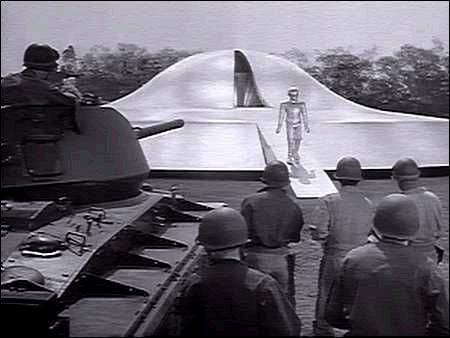All '09 theatrical releases.
directed by Ramin Bahrani
[The Immigration Experience Pt. III. I kid, as Bahrani's third feature concerning both poverty and a male, non-white protagonist is actually the most different of these, for better or for worse. More clearly influenced by the brothers Dardenne than his first two, Goodbye Solo starts after the beginning of the story, and we're left to figure out all the pieces of the plot on the run. Bahrani's mix of close-ups and medium shots work well while this is his least narratively experimental picture, it's also his best script--including two layered characters with equally layered performances from Red West & Souleymane Sy Savane. My only major complaint about the picture is its ending, as I still think Bahrani has yet to figure out how to really nail it home. The earned suspense leasing up to its closing seems bound to disappoint, but Bahrani disappoints in an entirely different way, using a lofty flight attendant metaphor that isn't really satisfying. Still, the 75 minutes preceding it are entirely impressive and enjoyable, as Bahrani continues to prove he's one of the five or so (less, maybe?) most important voices in independent cinema.]
7.5
Cheri
directed by Stephen Frears
[Frears, what the fuck? I'm no expert on your oeuvre--I haven't even seen Dangerous Liaisons, embarrassing as it is to admit--but your last film, The Queen, was incredibly controlled and smart...two qualities Cheri does not possess. From its oppressively over-the-top score to the uncommitted accents to its occasionally amateurish editing (it was recut? no way!) to your awkward, practically spontaneous narration, its hard to believe this was directed by the same fellow as The Queen, or even High Fidelity. This is not to mention the sometimes ridiculous situational comedy, which I'd already seen and shrugged off in Dirty Pretty Things (though it worked better there because of Tautou and Ejiofor). Sure, there are some great one liners via Colette, and its both pretty and brisk enough that it's never quite boring, but I can't imagine anyone being moved by its unconvincing coup de theatre. Pfeiffer's really giving her all, which is probably the saddest part. And in the end, its exploration of the psychological effects of aging pales in comparison to that of Synecdoche, NY, despite essentially talking about for 96 minutes. This fall can't be weak enough that this nabs one of the ten Best Pic nods, can it?]
4
The Brothers Bloom
directed by Rian Johnson
[Can't believe I almost let the naysayers who wrote this off as a disappointing quirkfest nearly steer me away from catching it in theaters. Year for year (as opposed to pound for pound, get it?), Rian Johnson is perhaps the most talented young American filmmaker, and The Brothers Bloom lets all of his ambition run rampant. It's hard to say whether he's a greater writer or director, as the shamelessly clever direction (including a great coital visual metaphor, among many others including some I probably missed) are only out-clevered by its metafictional, unabashedly derivative screenplay. This is a mess of a review as the film is a mess of cleverness and raw talent, although only too messy for its own good in the admittedly disappointing final act (although by then I was so hooked that it's climax could have been that it was all a dream and I'd still be happy with the final product). The actors all give fine performances--especially the women (Rachel Weisz and Rinko Kikuchi)--and they seem to be having genuine fun, while not in a way that makes it feel for the audience like being the only sober one in the room. It's nowhere near perfect, but watching such a prodigious filmmaker operate with a large budget and freedom is truly something to behold.]
8.5








